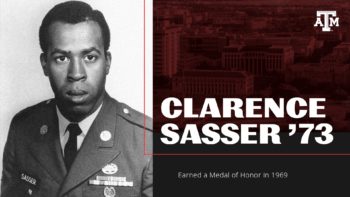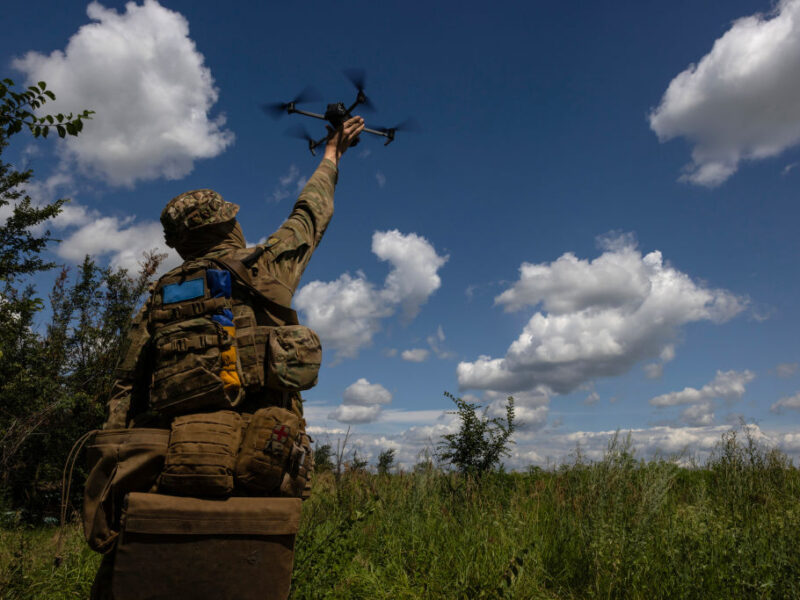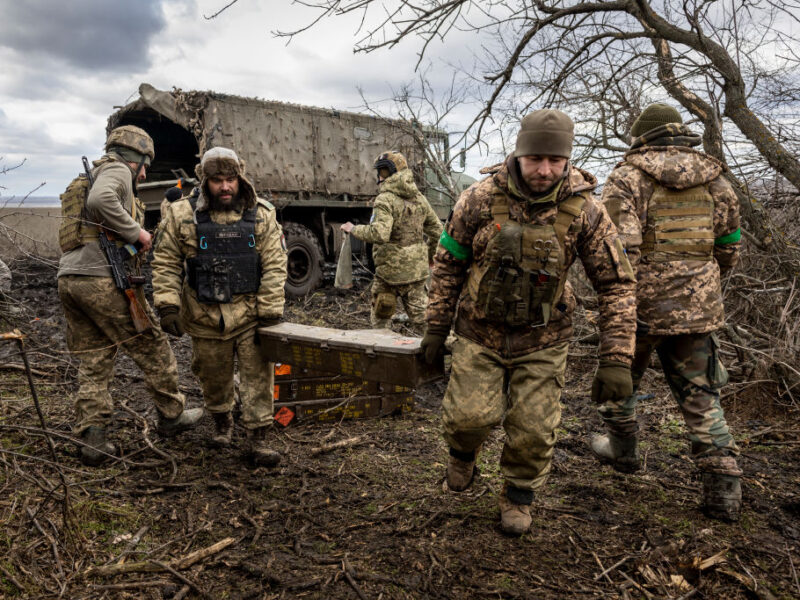Texas A&M Honors Former Student And Medal Of Honor Recipient Clarence Sasser
Medal of Honor recipient Clarence Sasser was welcomed back to the Texas A&M University campus Thursday where his medal will be on permanent display in the school’s Memorial Student Center (MSC).

“You are giving me something I’ll never forget,” Sasser said in emotional remarks after hearing a host of dignitaries laud him for battlefield valor in 1968 on a fateful day in Vietnam.
First and foremost, Sasser thanked the late Gen. Earl Rudder, then president of Texas A&M, for offering him a scholarship and giving him the opportunity to attend Texas A&M.
“I’m an Aggie at heart—always have been and always will be,” Sasser declared.
During a ceremony on campus, Texas A&M officials thanked Sasser for his military service and unveiled an exhibit area where his medal will be housed in the MSC’s Medal of Honor Hall of Honor alongside seven other medal recipients.
Sasser is the first African-American medal winner to be included in the hall and the first who served in the Vietnam War.
Previously, Texas A&M had seven Aggies whose names and likenesses grace the specially designated Medal of Honor Hall of Honor section in the MSC. All seven of them received Medals of Honor — including five posthumously — for service in World War II.
Sasser was a private in the 3rd Battalion, 60th Infantry Regiment, 9th Infantry Division in Vietnam at the time he performed his heroic actions that resulted in him receiving the Medal of Honor. On Jan. 10, 1968, Sasser, a medic, was helping evacuate soldiers wounded in a helicopter crash in a flooded rice paddy. Under heavy enemy fire, he carried one of the wounded soldiers to cover and returned to help carry others to safety, despite sustaining wounds in both his legs.
Texas A&M Chancellor John Sharp noted that “the greatest gift a person can ever give is to lay down his life for his fellow man. We never know if each of us is capable of such an act, but Clarence Sasser did, and it is a privilege that we can honor him today.”
“This is an extraordinary moment in the life of Texas A&M,” said President R. Bowen Loftin. “On behalf of the entire Aggie community, I say ‘thank you.’ You embody all of the great qualities that the Hall of Honor represents.”
Officials noted that about 40 million men and women have served in the U.S. military through the years, but only 34,631 Medals of Honor have been awarded, including 249 for acts of bravery in the Vietnam War.
Texas Gov. Rick Perry, in a video tribute to Sasser, said that “Aggies are among the first to answer the call when freedom is at stake, just as Clarence Sasser did. You made sure that many other men would not die there that day in the Mekong Delta. You are an exceptional individual.”
Cong. Bill Flores presented a U.S. flag to Sasser that flew over the Capitol Building in Washington, D.C., several days ago when Flores read to members of Congress the citation for Sasser’s medal, thus putting the remarks officially into the Congressional Record.
Also, Porter Garner, head of The Association of Former Students, on behalf of the entire Aggie family, presented Sasser with a Texas A&M football helmet that was worn during the Aggies’ win over the University of Texas-El Paso last week. The helmet had an ‘8’ decal attached, signifying Sasser as the eighth Aggie to win the Medal of Honor.
Sasser, who now resides in Rosharon, Texas, said he “was just doing my job that terrible day in Vietnam.
“I am proud that my medal was given to me for saving lives, not taking lives,” he said, but emphasized he had the greatest respect for the men whose job was to fight and engage the enemy.
He expressed regret that he did not graduate from college.
“Because of circumstances at the time, I did not graduate from Texas A&M, and that is my biggest regret because this school has become one of the most outstanding universities in the country,” he said.
Media Contact: Sherylon Carroll, Texas A&M Division of Marketing & Communications, s-carroll@tamu.edu.




